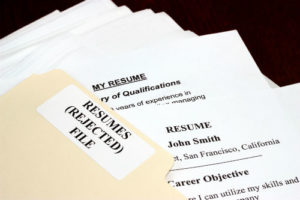In today’s ever-changing work environment, soft skills play a pivotal role in determining professional success. Unlike hard skills, which are about a person’s skill set and ability to perform a certain type of task or activity, soft skills are interpersonal and broadly applicable in the workplace.
Here are five essential soft skills for professional success, along with examples of how to showcase them in your resume or cover letter.
1. Communication
Importance: Effective communication is crucial in any workplace setting. It involves clearly conveying ideas, listening actively, understanding others’ perspectives, and responding appropriately. Good communicators can inspire and influence people, fostering a positive and productive work environment. Think about the leaders you know who inspired you. What was one of their best qualities? I bet it was the ability to communicate with their team.
How to Use in Resume/Cover Letter: In your resume, include instances where your communication skills led to positive outcomes, such as resolving conflicts, delivering presentations that won significant accounts, or leading workshops that improved team performance.
In your cover letter, you might write, “I have honed my communication skills through various leadership roles, consistently ensuring clear and effective dissemination of objectives and fostering an atmosphere of open dialogue.”
2. Teamwork
Importance: Collaboration and the ability to work well with others are fundamental in most jobs. Employers look for individuals who can contribute to the team, share ideas, and support their colleagues to achieve common goals while not involving themselves in drama.
How to Use in Resume/Cover Letter: Highlight specific projects where your ability to work in a team was evident in achieving results. For instance, “Collaborated with a cross-functional team to increase project efficiency by 30%, demonstrating strong teamwork and problem-solving skills.” In a cover letter, mention how you believe in the power of teamwork to overcome complex challenges and bring innovative solutions to life.
3. Problem-Solving
Importance: The ability to identify problems, analyze underlying causes, and implement solutions is invaluable. Problem-solving skills show that you can navigate challenges creatively and effectively, a quality that is highly prized in any role. We like to use CAR stories (Challenge, Action, Results). What was the challenge you faced? What action did you take to change it? What were the results?
How to Use in Resume/Cover Letter: Provide examples of situations where you successfully solved a problem or made an improvement. For example, “Identified a bottleneck in the production process and implemented a new strategy that reduced delivery times by 20%.” Your cover letter could explain a scenario where your problem-solving skills led to a significant breakthrough in a project or task.
4. Adaptability
Importance: In a fast-paced work environment, change is constant. Being adaptable means you can handle unexpected situations with ease and remain flexible in your approach to challenges and new tasks. How can we forget the pandemic? Adaptability in a time of crisis wins every time.
How to Use in Resume/Cover Letter: Mention experiences where you had to quickly adapt to changes or learn new skills to meet the demands of your role. In your resume, this could be, “Adapted to a rapidly changing work environment by learning new software in a short period, which increased the team’s productivity by 15%.” In your cover letter, reflect on a time when your adaptability allowed you to successfully navigate a difficult situation.
5. Emotional Intelligence
Importance: Emotional intelligence is the ability to understand and manage your own emotions and those of others. It involves empathy, social skills, self-awareness, and self-regulation. High emotional intelligence can lead to better relationships at work, improved leadership skills, and a positive workplace culture.
How to Use in Resume/Cover Letter: Highlight roles or situations where your emotional intelligence made a difference. This could be through conflict resolution, mentoring colleagues, or leading a team through a stressful period. For example, “Leveraged my high emotional intelligence to mediate a conflict between team members, resulting in enhanced team harmony and productivity.” In your cover letter, discuss how your emotional intelligence has been a key factor in your professional development and success.
Conclusion
Soft skills are increasingly becoming the differentiators between good and great professionals. By effectively showcasing these skills in your resume and cover letter, you can demonstrate to potential employers that you not only have the technical skills required for the job but also the interpersonal capabilities that will make you a valuable addition to their team.
Remember, the key is to provide specific examples that highlight how these skills have contributed to your successes and how they can be beneficial in the role you’re applying for.










